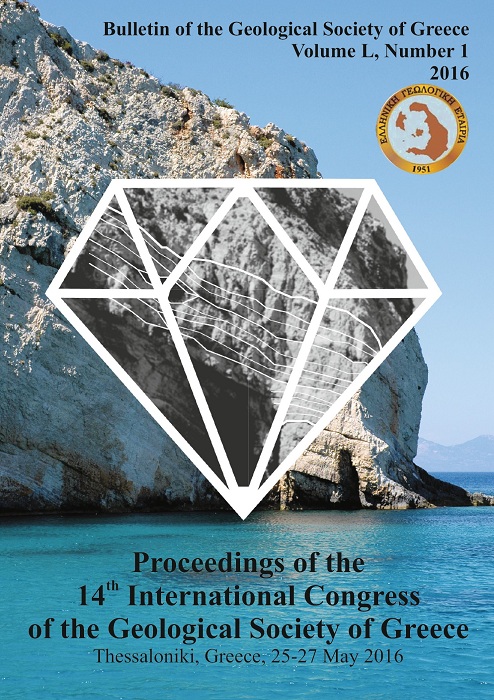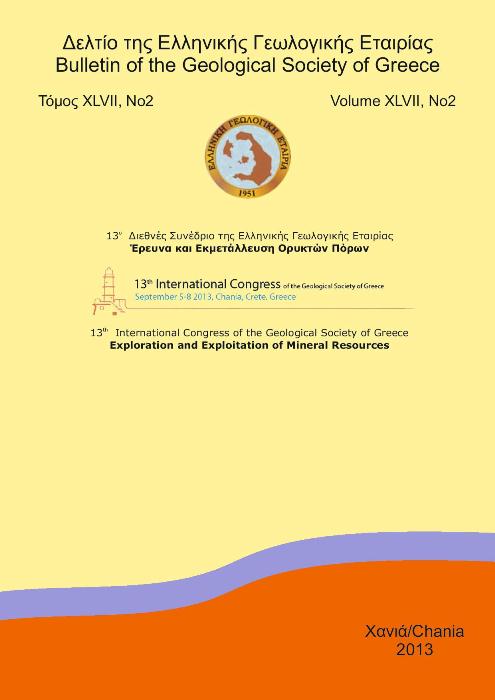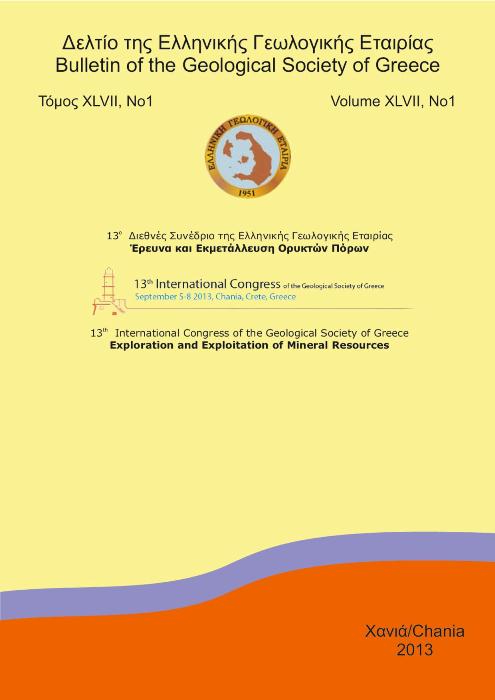THE OLVIOS, RETHIS AND INACHOS DRAINAGE SYSTEM EVOLUTION AND HUMAN ACTIVITIES INFLUNCE OF THEIR FUTURE EVOLUTION
Περίληψη
Λεπτομέρειες άρθρου
- Πώς να δημιουργήσετε Αναφορές
-
Anagnostoudi, T., Papadopoulou, S., Ktenas, D., Gkadri, E., Pyliotis, I., Kokkidis, N., & Panagiotopoulos, V. (2010). THE OLVIOS, RETHIS AND INACHOS DRAINAGE SYSTEM EVOLUTION AND HUMAN ACTIVITIES INFLUNCE OF THEIR FUTURE EVOLUTION. Δελτίο της Ελληνικής Γεωλογικής Εταιρείας, 43(2), 548–557. https://doi.org/10.12681/bgsg.11217
- Ενότητα
- Παλαιοντολογία, Στρωματογραφία και Ιζηματολογία

Αυτή η εργασία είναι αδειοδοτημένη υπό το CC Αναφορά Δημιουργού – Μη Εμπορική Χρήση 4.0.
Οι συγγραφείς θα πρέπει να είναι σύμφωνοι με τα παρακάτω: Οι συγγραφείς των άρθρων που δημοσιεύονται στο περιοδικό διατηρούν τα δικαιώματα πνευματικής ιδιοκτησίας επί των άρθρων τους, δίνοντας στο περιοδικό το δικαίωμα της πρώτης δημοσίευσης. Άρθρα που δημοσιεύονται στο περιοδικό διατίθενται με άδεια Creative Commons 4.0 Non Commercial και σύμφωνα με την οποία μπορούν να χρησιμοποιούνται ελεύθερα, με αναφορά στο/στη συγγραφέα και στην πρώτη δημοσίευση για μη κερδοσκοπικούς σκοπούς. Οι συγγραφείς μπορούν να: Μοιραστούν — αντιγράψουν και αναδιανέμουν το υλικό με κάθε μέσο και τρόπο, Προσαρμόσουν — αναμείξουν, τροποποιήσουν και δημιουργήσουν πάνω στο υλικό.






